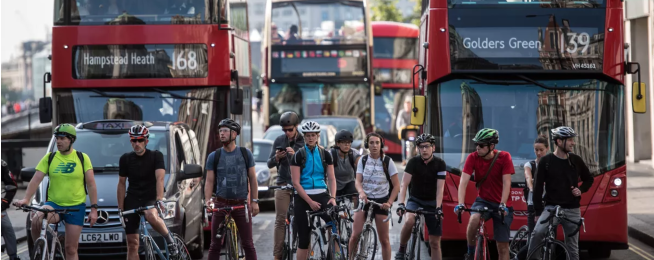It just keeps on coming — Amsterdam, London and Oslo are the latest capital cities to push forward with plans to reduce car dependency and boost public and active transport.
Amsterdam is removing 11,200 car parking spaces; Oslo is removing all 650 parking spaces in the central downtown area; and the London financial district—the Square Mile—is planning to ban cars altogether from much of the precinct.
This would have been unthinkable just a decade ago, but now it’s a peak hour rush to get cars out of the city rather than in.
The changes are being driven by an intertwined combination of powerful environmental and economic factors that are overwhelming resistance from politicians and vested interests.
Australia’s leaders have been slow to catch on.
In London, more than half of the financial district would be designated pedestrian priority with cars, vans, taxis and buses banned. Bikes would be permitted.
Where cars are allowed the speed limit would be 25kmh.
Oslo planned to get its greenhouse gas emissions down to 95% of its 1990 levels by 2030. The plan has three steps: First, all on-street parking in the central district is being removed; then several streets are being closed to vehicle traffic and 65 kilometres of bike lanes are under construction; then, if car using is not coming down fast enough, bans will be implemented.
In Amsterdam the city is about the start an annual program of reducing parking permits by 1500 spaces a year until 11,200 are gone by 2025.
Permits are required for parking in the city, so no more will be issued. What are now parking spaces will be switched to trees and other placemaking features.
And bike parking.
In Australia, Melbourne City has announced adventurous plans to give higher priority to active and public transport.
Resistance has not been as fierce as some expected, so maybe there is hope for Australia yet.
However, the latest insights from the NSW infrastructure budget aren't promising, with bikes seemingly forgotten.
Become our friend
Find out more about Bicycle Network and support us in making it easier for people to ride bikes.


